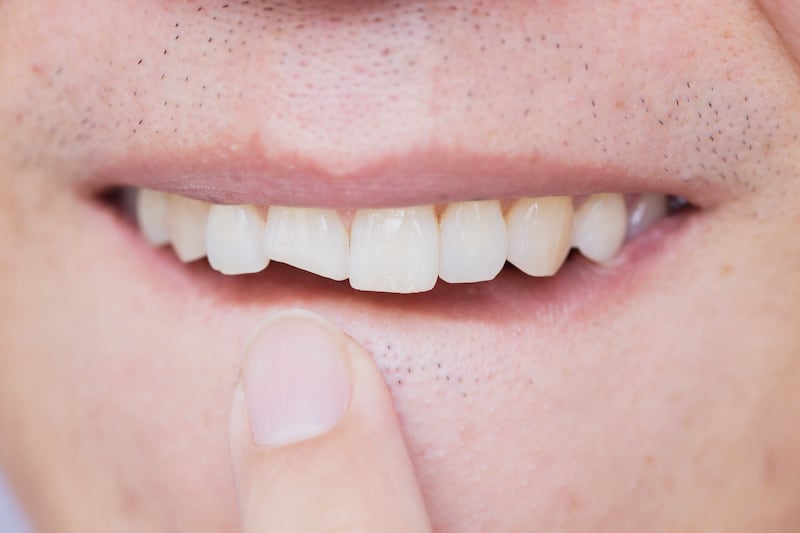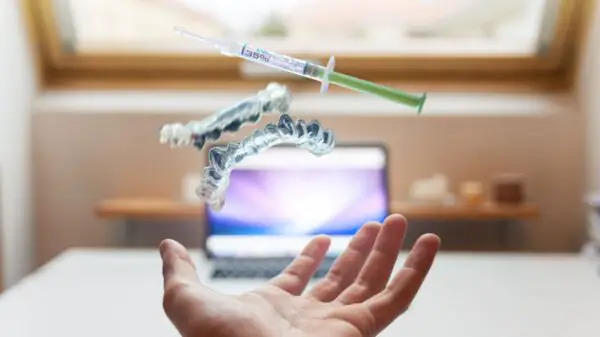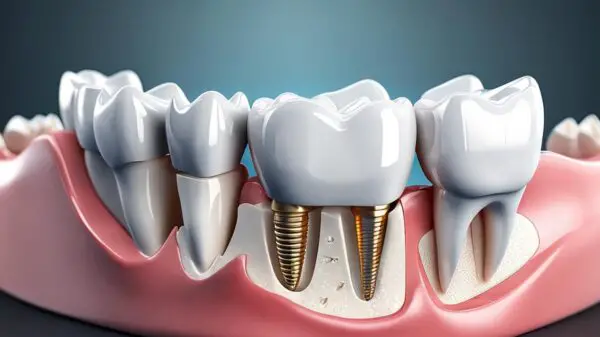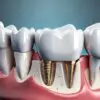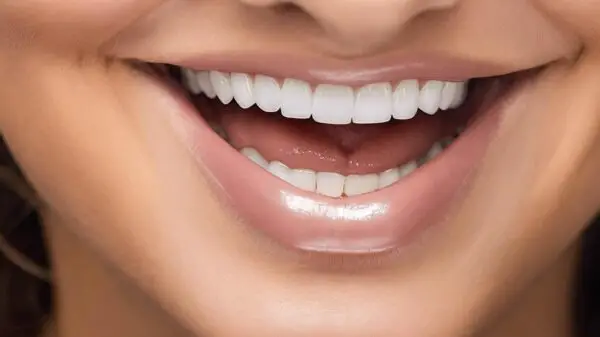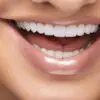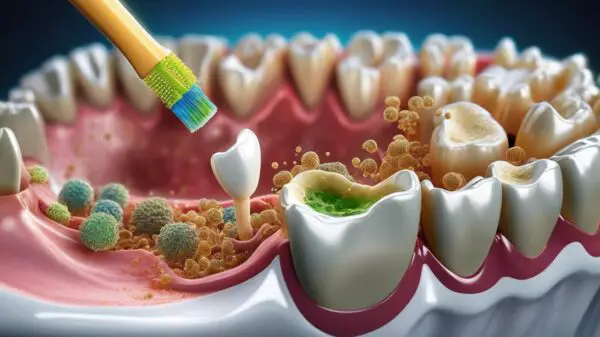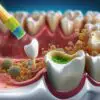Everything You Need to Know About Fixing a Cracked Tooth
Whether you can pinpoint the moment it happened or you noticed it when you were brushing your teeth, a cracked tooth can be rather unnerving. Of course, our first instinct is to assume that this problem requires professional dental care. However, if the crack seems minor, many people are tempted to wait it out to see how the crack in the tooth progresses.
So, can a crack in a tooth health itself? Although your tooth may be able to heal a surface crack, these types of cracks are highly unusual. Additionally, even if you have only experienced a hairline fracture in your tooth, it will not be able to achieve optimal strength without professional intervention. For these reasons, it is important to seek professional dental care as soon as you notice a crack in a tooth.
What if your cracked tooth isn’t causing any pain? Is it really necessary to invest in dental care if the crack in the tooth seems minimal? Once you go to the dentist, how will they treat your cracked tooth? In this post, we will answer these questions and more, providing you with everything you need to know about fixing a cracked tooth.
Is a Cracked Tooth Considered a Dental Emergency?
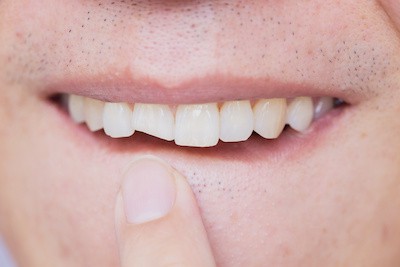 Most likely, your cracked tooth will not require emergency dental care. The majority of patients with a cracked tooth will experience no pain or discomfort. While it is important to seek professional dental treatment to resolve this issue, it is not urgent.
Most likely, your cracked tooth will not require emergency dental care. The majority of patients with a cracked tooth will experience no pain or discomfort. While it is important to seek professional dental treatment to resolve this issue, it is not urgent.
However, if you are experiencing pain or discomfort due to your cracked tooth, or if there are sharp fragments that could cause additional injury, it is important to seek emergency dental care. If your dentist does not advertise this service, contact their office as soon as possible to ask for a referral if they are unable to treat you immediately.
Using Dental Bonding to Fix a Crack in a Tooth
As we mentioned previously, a cracked tooth is not able to heal entirely on its own. Because a crack in your tooth weakens the structure of your tooth, it is important to seek professional treatment. If you go to the dentist with a cracked tooth, they will likely recommend dental bonding.
Dental bonding is a conservative, effective treatment to conceal cracks, chips, and stains in the tooth. This procedure can also cover minor orthodontic issues and refine the shape of your teeth. Your dentist will carefully tint and sculpt a specialized composite resin to help you achieve your dream smile.
Are minor chips, stains, or other imperfections keeping you from sharing your smile? Is a gap in your smile making you self-conscious? Dental bonding can quickly conceal these imperfections and provide natural-looking results through the application of a tooth-colored resin.
Oftentimes, patients choose this treatment as a way to decide if they wish to pursue a more permanent enhancement through porcelain veneers. During a consultation, your dentist can take note of your goals as well as the severity of the crack in your tooth to determine if dental bonding is right for you.
In some situations, the crack in the tooth may be too severe to treat with dental bonding. For advanced cracks such as these, your dentist may suggest a more aggressive approach such as a dental crown or bridge.
Dental Bonding Procedure
From start to finish, dental bonding to treat a crack in your tooth or other concern usually involves at least two visits to your dentist’s office. Many patients choose to undergo teeth whitening before bonding in order to achieve more dramatic results, which could extend the total timeline of treatment.
During the first office visit, your dentist will listen as you explain what you wish to improve about your smile. If a cracked tooth is the reason you are considering dental bonding, they may use x-rays or other testing to determine the severity of the crack.
Based on this information, as well as an assessment of the health of your gums and teeth, your dentist can determine if bonding is for you. In some cases, other treatments may be more effective in providing the results you wish to achieve.
During a second visit, a very mild acidic solution will be applied to the teeth you wish to treat. This will create a slightly rougher surface that will more effectively bond to the resin. Next, your dentist will begin applying layers of dental resin that has been carefully matched to the shade of your teeth.
He will trim away excess resin and polish the remaining material to achieve a smooth and natural-looking result. Finally, he can make any adjustments necessary to maintain a balanced and comfortable bite, and perform any alterations necessary to make the final results meet your expectations. Immediately following treatment, you can leave our office with a stunning new smile, free of cracks or imperfections!
At-Home Maintenance Tips for Dental Bonding
Once you repair the crack in your tooth using dental bonding, it is important that you carefully abide by proper oral hygiene routines and habits. You can prolong the results of dental bonding by following a few simple tips including the following:
- Reduce consumption of dark foods and drinks such as coffee, tea, red wine, and berries.
- Avoiding biting hard objects, or chewing fingernails, pen caps, or ice.
- Continue undergoing regular six-month checkups with your dentist.
- Contact your dentist’s office if you notice sharp edges or chips to your tooth.
- Avoid chewing especially sticky or chewy foods with your treated teeth.
Your local dentist may provide you with additional care or maintenance tips to preserve the health of your teeth and gums following dental bonding. It is important to follow their advice regarding your unique care plan.
Other Alternatives for Fixing a Cracked Tooth
While dental bonding is one of the most common ways to fix a cracked tooth, there are other services that your dentist may recommend. Alternative treatments for fixing a cracked tooth include dental crowns, dental bridges, fillings, implants, porcelain veneers, or extraction. The treatment that your dentist recommends will depend heavily on the severity of the crack and the health of the surrounding teeth.
What to Do When You Crack a Tooth
Many times, patients do not realize they have cracked a tooth until hours later when they are brushing their teeth. However, in some cases, you may have experienced an accident that has caused a crack in your tooth. Occasionally, this can be accompanied by bleeding if the gum was damaged.
When you crack your tooth, it is important to remain calm as you assess the damage. Rinse your mouth with salt water to clean the area. This can also help alleviate any pain you may be experiencing. If pain or discomfort persists, you may wish to take an over-the-counter pain reliever until you can contact your dentist.
If the crack has left a jagged or sharp edge, you must protect yourself from additional injury. Use a piece of soft chewing gum or wax to cover the sharp edge. If your tooth has a sharp edge, you must contact your dentist for emergency dental care as the crack is considered severe.
Finally, avoid using the tooth for chewing until the dentist can assess the situation. You must continue to brush your teeth twice a day, although you must brush carefully over the cracked tooth. It is best to contact your dentist for professional treatment soon after the crack occurs to prevent additional cracking or damage to the tooth. While you may be tempted to let your tooth heal on its own, this is not likely in most cases.
Thank you for visiting Modern Dental Hygiene! Find more helpful oral health tips here.



